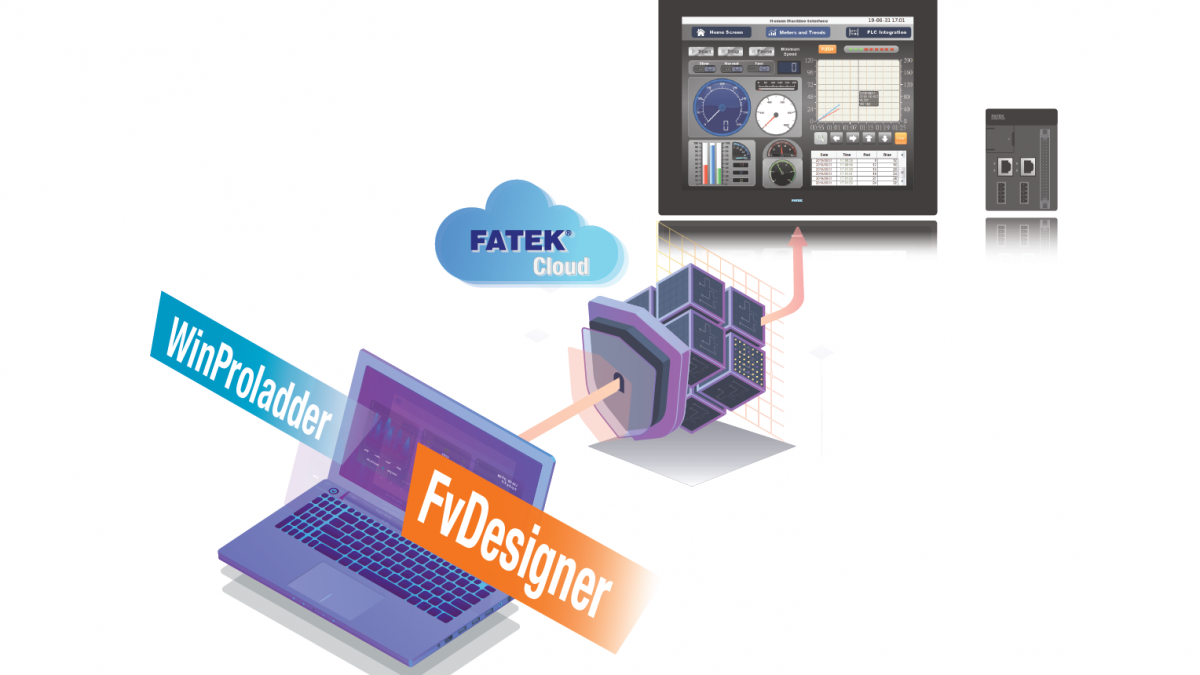1. EXECUTIVE SUMMARY
- CVSS v3 7.8
- ATTENTION: Low attack complexity
- Vendor: FATEK Automation
- Equipment: WinProladder
- Vulnerabilities: Out-of-bounds Read, Out-of-bounds Write, Improper Restriction of Operations within the Bounds of a Memory Buffer
2. RISK EVALUATION
Successful exploitation of these vulnerabilities could allow for the execution of arbitrary code.
3. TECHNICAL DETAILS
3.1 AFFECTED PRODUCTS
The following versions of FATEK Automation WinProladder, a PLC, are affected:
- WinProladder: Versions 3.30 and prior
3.2 VULNERABILITY OVERVIEW
3.2.1 OUT-OF-BOUNDS READ CWE-125
The affected product is vulnerable to an out-of-bounds read, which may allow an attacker to execute arbitrary code.
CVE-2021-32990 has been assigned to this vulnerability. A CVSS v3 base score of 7.8 has been calculated; the CVSS vector string is (AV:L/AC:L/PR:N/UI:R/S:U/C:H/I:H/A:H).
3.2.2 OUT-OF-BOUNDS WRITE CWE-787
The affected product is vulnerable to an out-of-bounds write, which may allow an attacker to execute arbitrary code.
CVE-2021-32988 has been assigned to this vulnerability. A CVSS v3 base score of 7.8 has been calculated; the CVSS vector string is (AV:L/AC:L/PR:N/UI:R/S:U/C:H/I:H/A:H).
3.2.3 IMPROPER RESTRICTION OF OPERATIONS WITHIN THE BOUNDS OF A MEMORY BUFFER CWE-119
The affected product does not properly restrict operations within the bounds of a memory buffer, which may allow an attacker to execute arbitrary code.
CVE-2021-32992 has been assigned to this vulnerability. A CVSS v3 base score of 7.8 has been calculated; the CVSS vector string is (AV:L/AC:L/PR:N/UI:R/S:U/C:H/I:H/A:H).
3.3 BACKGROUND
- CRITICAL INFRASTRUCTURE SECTORS: Critical Manufacturing
- COUNTRIES/AREAS DEPLOYED: Worldwide
- COMPANY HEADQUARTERS LOCATION: Taiwan
3.4 RESEARCHER
Michael Heinzl reported these vulnerabilities to CISA.
4. MITIGATIONS
FATEK Automation is aware of the issue and is currently developing a solution. For more information, contact FATEK via website or phone: +866-2-2808-2192
CISA recommends users take the following measures to protect themselves from social engineering attacks:
- Only open project files from trusted sources.
- Ensure the least-privilege user principle is followed.
- Do not click web links or open unsolicited attachments in email messages.
- Refer to Recognizing and Avoiding Email Scams for more information on avoiding email scams.
- Refer to Avoiding Social Engineering and Phishing Attacks for more information on social engineering attacks.
CISA recommends users take defensive measures to minimize the risk of exploitation of this vulnerability. Specifically, users should:
- Minimize network exposure for all control system devices and/or systems, and ensure that they are not accessible from the Internet.
- Locate control system networks and remote devices behind firewalls, and isolate them from the business network.
- When remote access is required, use secure methods, such as Virtual Private Networks (VPNs), recognizing VPNs may have vulnerabilities and should be updated to the most current version available. Also recognize VPN is only as secure as its connected devices.
CISA reminds organizations to perform proper impact analysis and risk assessment prior to deploying defensive measures.
CISA also provides a section for control systems security recommended practices on the ICS webpage on us-cert.cisa.gov. Several recommended practices are available for reading and download, including Improving Industrial Control Systems Cybersecurity with Defense-in-Depth Strategies.
Additional mitigation guidance and recommended practices are publicly available on the ICS webpage on us-cert.cisa.gov in the Technical Information Paper, ICS-TIP-12-146-01B–Targeted Cyber Intrusion Detection and Mitigation Strategies.
Organizations observing any suspected malicious activity should follow their established internal procedures and report their findings to CISA for tracking and correlation against other incidents.
No known public exploits specifically target these vulnerabilities. These vulnerabilities are not exploitable remotely.
Source:


Stay connected